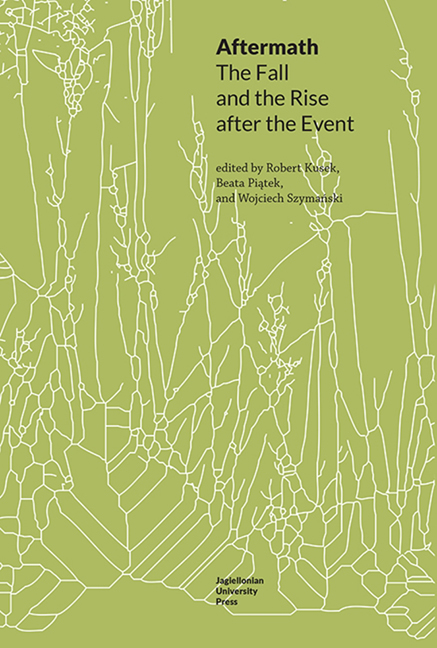Evental Research… After the Future of Work
Published online by Cambridge University Press: 06 November 2021
Summary
This essay explores the value of artistic research through the concept of the “event.” Today, “events” are increasingly understood as disastrous or catastrophic happenings which signal the end of the world. In anticipation of these “events” new forms of subjectivity emerge which reduce creativity and imaginative activity to normative modes of survival. As an “event” is always that which breaks with normative modes of existence, this paper argues for an evental conception of artistic research which can cultivate the “significance” of events as generators of innovation, critique, and collective meaning making. Navigating the various ways that “events” can be reified and “neutralised” through traditional analytical frameworks, this paper privileges the exploration of “events” through practice. Within this content, a long term artistic research project titled: After the Future… of Work (2017–2019), was set up to engage local communities on the future of work after the 2008 recession. By identifying and working through a deeper understanding of the relationship between risk, significance, and subjectivity, these practices support an affirmative orientation towards the event, one which produces new collective subjectivities through the exploration of “events qua events.”
Artistic Research
There has been significant tension around the language used to define artistic research in recent years. This language indicates a set of the disciplinary conflicts between artistic practice and academic discourse that is played out through a diverse lexicon of key terms. These key terms aim to either protect artistic practice from academic discourse or to expand on its potential synthesis as a new form, and include: “practice-based research”; “practice-led research”; “practice-driven research”; “research-through-practice”; “performance research”; “practice-research”; and “artistic research.” Within these debates, Henk Borgdorff has elaborated on the concept of “artistic research,” which he characterises as a performance of “unfinished thinking,” that is, as a type of research which is not so much about the production of knowledge as it is about the performance of the relationship between knowledge and non/knowledge, a thinking “in, with, and through” artistic modes of production (Borgdorff 2012: 1). Drawing attention to the lack of historical analysis within this field, Borgdorff calls for a deeper historical engagement with the relationships between “art, academy and research” (ibid.).
- Type
- Chapter
- Information
- AftermathThe Fall and the Rise after the Event, pp. 207 - 218Publisher: Jagiellonian University PressPrint publication year: 2022



